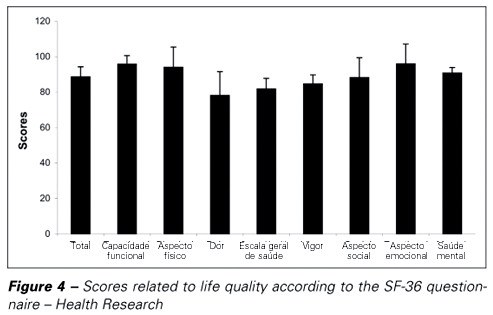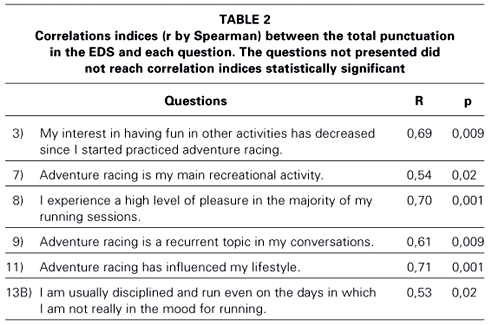The aim of this study was to verify the referring scores of exercise dependence, quality of life as well as the mood indicators in adventure race (AR) athletes. 17 athletes of both sexes participated in the study and all had a history of three years in this modality, with national and international experience, and figured in the first positions in the Brazilian ranking. The age, height, weight, body mass index (BMI) and oxygen uptake averages ± standard deviations were: 31.11 ± 6.30 years; 1.73 ± 0.07 cm; 70.75 ± 7.96 kg; 23.48 ± 1.48 wt/ht² and 58.70 ± 6.63 ml.min-1.kg-1, respectively. The volunteers were given the following questionnaires: Exercise Dependency Scale (EDE), Idate Trait and State, Profile of Mood States (POMS), SF-36 Health Research and Social Patterns Questionnaire. The results showed that scores in EDE indicated exercise dependence, and the mood questionnaires revealed moderate anxiety, while the POMS did not detect any indicative scores of mood disorders. Concerning the quality of life, the average of 8 dimensions of the SF-36 was higher than 85%, suggesting that although there was exercise dependence, this fact alone did not promote significant alterations in mood and quality of life. Thus, our data suggested that athletes of AR have exercise dependence not associated to mood disorders.
Athletes; Adventure race; Exercise dependency; Mood






